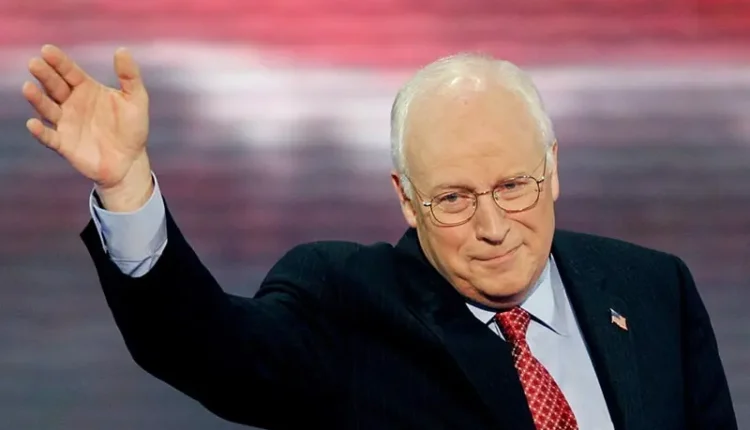Dick Cheney, the US vice president who campaigned for the Iraq invasion, died at 84.
The life and legacy of Dick Cheney, a powerful and controversial US Vice President.
Dick Cheney – (Special Correspondent / Web Desk) – Dick Cheney, a major supporter of the 2003 U.S. invasion of Iraq, has died at the age of 84. His family announced his passing in a statement, saying he died from problems related to pneumonia and heart disease. Historians often view Cheney as one of the most influential vice presidents in American history.
Before becoming vice president, Cheney was a congressman from Wyoming and the Secretary of Defense. He was already a well-known figure in Washington when George W. Bush chose him as a running mate for the 2000 presidential election.
From 2001 to 2009, Cheney strongly believed in strengthening the power of the presidency. He felt it had grown weaker since the Watergate scandal. He also greatly increased the influence of the vice president’s office, creating his own powerful team for national security matters.
Cheney was a vocal supporter of invading Iraq in 2003. He often warned about the danger of Iraq’s supposed stockpile of weapons of mass destruction. However, after the invasion, no such weapons were ever found.
He had many disagreements with other top officials in the Bush administration. He also defended harsh interrogation methods used on terrorism suspects, such as waterboarding. Many organizations, including a U.S. Senate committee, labeled these techniques as torture.
Cheney faced serious heart problems for most of his adult life, having his first heart attack at age 37. He received a heart transplant in 2012.
Before the Iraq War, Cheney suggested there was a link between Iraq and the 9/11 attacks. A official commission later found this not to be true. He predicted U.S. troops would be welcomed as liberators and that the war would be short, but it lasted for nearly a decade.
Years earlier, as Defense Secretary for President George H.W. Bush, Cheney had helped lead the first Gulf War to push Iraqi forces out of Kuwait. At that time, he did not support a full invasion of Iraq.
When he joined George W. Bush’s campaign in 2000, Cheney received a large retirement package from Halliburton, an oil services company he had led. This connection was often criticized after Halliburton won large contracts during the Iraq War.
Canada & Pakistan agreed to facilitate canola commerce.
Born in Nebraska in 1941, Cheney grew up in a Democratic family but became a Republican. He was a mediocre student who dropped out of Yale before eventually earning degrees from the University of Wyoming.
He moved to Washington in 1969 and held jobs in the administrations of Presidents Nixon and Ford. Donald Rumsfeld, another key architect of the Iraq War, was an early mentor.
During his time in Congress, Cheney had a very conservative record. He voted against abortion rights and against freeing Nelson Mandela from prison. His wife, Lynne, is also a well-known conservative voice.
His daughter Liz followed him into politics, becoming a Republican congresswoman known for her strong foreign policy views. She lost her seat after opposing former President Donald Trump, a position her father later agreed with.
Cheney’s personal life also drew attention. He was supportive of his second daughter, Mary, who is a lesbian, putting him at odds with his own party’s stance on gay marriage at the time. In 2006, he accidentally shot a friend during a hunting trip, making national news.
Even after leaving office, Cheney remained a controversial figure. He was portrayed in a critical biographical film called vice. He often seemed to enjoy provoking his critics and used his memoir to settle old political scores.






Comments are closed, but trackbacks and pingbacks are open.